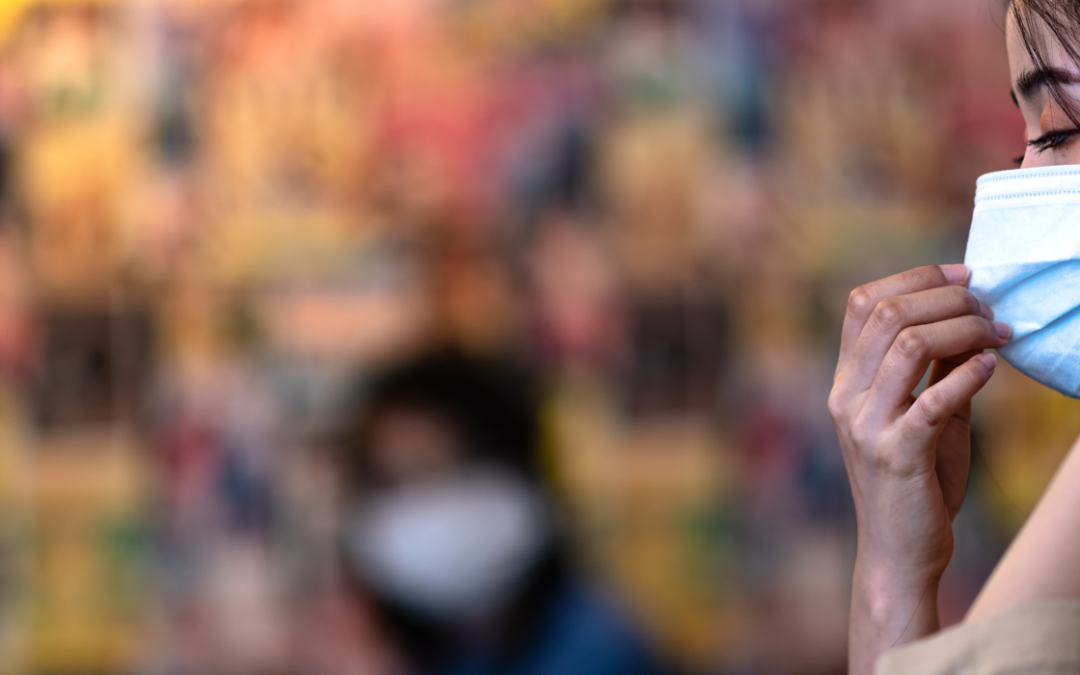Have you ever planned out an idyllic day in meticulous detail, and upon its arrival been left with empty expectations and a looming feeling of dread? Perhaps the weather was not in your favor, somebody fell ill, or any force out of your control proved to be a barrier.
For many of us, 2020 has matched this narrative, continuously altering expectations and plans. In addition to pollen, this past spring brought a thick wave of fear and melancholia. The effects of COVID-19 have been extremely devastating across the world.
Prior to COVID, many of us students were in the midst of a race: routinely waking up before the sun to juggle homework and extracurriculars. We went through our academic journeys half asleep, day by day, going through the motions. It is quite remarkable that irrespective of age or agendas, an infinitesimal virus––invisible to the naked eye––locked us in our homes, stripped us of socialization, and took so many lives so rapidly. In turn, we were starkly reminded of our limitations on Earth.
As this year comes to a close, in a limbo period between having acclimated to mask-wearing, and still wondering when society will return to normal, the only thing we have control over are our mindsets. Subconsciously, many of us feel that we can only be happy with the return of pre-COVID normalcy. This is understandable having gone through lifestyle changes so abruptly; challenges included unemployment, government mandated isolation, anxiety about the spreading of sickness, grieving over passed loved ones, and other unimaginable circumstances.
However, The Holy Quran states “verily, with every hardship comes ease” 94:6. Beyond hardship and illness, COVID has brought significant clarity to how busyness may have clouded our judgement. We are now more likely to cherish good health and loved ones. We are more likely to let go of the miniscule irritations or external pressures which once felt all encompassing. We are more likely to be grateful for the blessings of a “normal” life we previously took for granted. Personally, it has opened my eyes to the discrepancy between my priorities and values.
We are all equally subject to time, but life and its fragility are now an unavoidable subject across the globe. COVID has evoked common reflections: how finite and precious life is, and how heedless we were in the ways we spent it. In Islam, we are encouraged to remind ourselves of this regularly by reflecting upon death, attending janazah prayers, funerals, and burials. We are taught to spend every moment in remembrance of Allah (SWT) and pray every salah as if it is our last. I’ve recently learned the purpose behind this sentiment is not to fear the end of life five times a day, nor to focus excessively on it. On the contrary, being aware and appreciative of one’s presence during prayer can further enhance their inner peace and quality of life.
Investing all of one’s assets into the future can be an unsatisfying way to live. None of us can speak to what the future holds, or control every factor of our days––COVID has made for a better example of this than anything I have previously experienced. Thus, I feel I should not come out of this pandemic exactly as I was before, and continue to race through life, routinely, and without deeper thought.
While this year has been tumultuous and tragic, consisting of cancelled plans and closed doors, it has been a unique opportunity for reflection. Since its arrival in March, COVID has been demonized in every way. So as the year ends, I feel I am ready to let go of any bottled up anger towards it. It is important to remember that even through isolation, Allah (SWT) is always by your side, and if you take one step towards Him, He takes ten towards you. Calamity can often be a catalyst for change. If 2020 has not been your year, and your goals have not come to fruition, then with a change in energy, optimism, and priorities (the factors we can control), Inshallah, the new year will be easier for us all.
Copyright © 2020 American Islamic Montessori Association, all rights reserved.
Fatema Rehmani is a sophomore at Saint Louis University. Her personal philosophy is, “If you want to make the world a better place, look at yourself and make a change” -Michael Jackson. Her hobbies include baking, writing, and spending time with friends and family.

